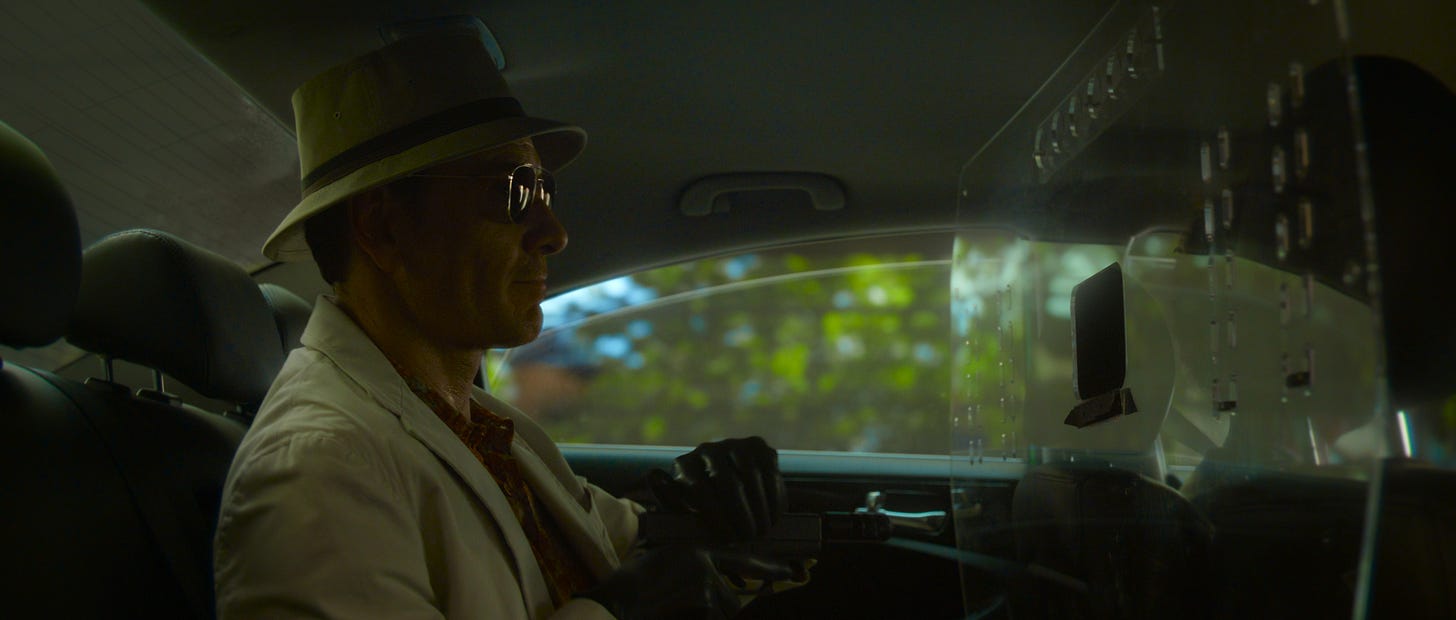'The Killer' is the most uninteresting man in the world
Which is what makes David Fincher's assassin so darn interesting.
He’s a handsome, athletic man who makes his living as an international assassin. He’s taken assignments from Tokyo to Paris, and has a perfect kill record (with an asterisk – one of his targets died of natural causes before he could complete his mission). He knows every way there is to kill someone, from 1000 feet away with a high-powered rifle to six inches away with a garrote.
And he’s boring as hell.
That’s the central joke of David Fincher’s stylish new thriller “The Killer,” which premiered Oct. 10 on Netflix. Fincher may be at his best when he’s dabbling in genre exercises (“Gone Girl,” “The Girl with the Dragon Tattoo”) and here he finds a new spin on the trope of the cool hitman. By making him uncool.
The first 20 minutes of “The Killer” observes the unnamed killer (Michael Fassbender) as he observes his next target in a palatial Parisian apartment from an abandoned WeWork office across the street (it’s the gig economy, get it?). He watches and waits for his opportunity.
And he talks. Boy does he talk. Fassbender provides nonstop narration, voicing the thoughts that are running through this assassin’s head. And it’s banal as hell, as if he’s lecturing a new intern about the ins and outs of the job. (“Stick to the plan. Forbid empathy. Fight only the battle that you’re paid to fight.”) As the moment to pull the trigger grows nearer, the observations become even more banal (“It’s a dog eat dog world.”)
As he rambles on, he seems less like an ice-cold killer and more like a weary businessman posted up at an airport bar during a layover, droning on and on about his work to the half-drunk guy on the barstool next to him. He’s not suave or sophisticated like James Bond, and he’s not soulful or tortured like Leon the Professional. He thinks he’s interesting (“one of the few”), but it’s his particular set of skills that are interesting, not him. He’s just a guy doing a job, following a routine. He’s boring.
Which makes him interesting. Or at least distinctive from the many other hired killers who have appeared on screen over the years. And I think Fincher and screenwriter Andrew Kevin Walker don’t even care much if the viewer is paying attention to what he’s saying. They just want the babble of jabber in the killer’s head to fill the movie.
Because when the killer hits the wrong target, the babble abruptly stops. “This is new,” he says in voiceover, but instead of the confident swagger of the original narration, Fassbender delivers it in a hushed whisper. The killer has made a mistake, and he’s knocked off his game.
For the next 20 minutes, the chatty assassin is almost dead silent as he quickly escapes the scene of the crime, leaves the country, and tries to assess what to do next. It’s a terrific way that “The Killer” builds tension with that sudden silence, focusing our attention back on what the killer does.
What he does is, of course, tremendously interesting to us. The rest of “The Killer” is broken up into chapters, meticulously-designed sequences that follow the Killer as he works away up the organizational flowchart of the group who betrayed him, from the boss who sold him out (Charles Parnell) to the rival assassin who was hired to erase him (Tilda Swinton). It’s thrilling, high-level filmmaking.
And, aside from a few wry observations about the cities he’s visiting (“New Orleans: A thousand restaurants and one menu”), when the Killer’s voiceover narration returns to his familiar koans (“Forbid empathy”), it’s used almost ironically. It’s like he’s paging through the employee manual to try and figure out what to do next, get back into the rhythms of his old work routine. But he’s in uncharted territory.
All this builds to the final chapter, in which the Killer confronts the Chicago billionaire (Arliss Howard) who ordered the hit. And finds out that not only was the assignment not personal, the billionaire ordered it as an afterthought, like getting the extended warranty on a new car without reading the fine print.
Instead of being special, “one of the few,” the Killer spares the billionaire’s life in part because he doesn’t need to kill him, and in part because he now understands that he’s just another employee, a disposable small part in the machine. He’s boring. He’s “one of the many.”
And that realization sets him free.


